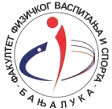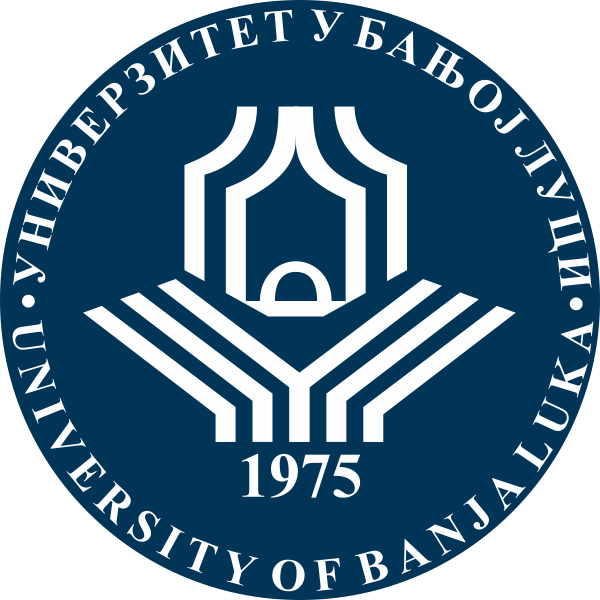SportLogia
Vol. 18, Issue 1, december 2022.
EVALUATION OF PEDAGOGICAL COMPETENCES AND MOTIVATION OF TAEKWONDO COACHES FOR PERMANENT EDUCATION
Jovana Njegovan and Draženko Jorgić
Taekwondo club „Prnjavor“ Prnjavor Bosnia and Herzegovina
University of Banja Luka, Faculty of Philosophy, Bosnia and Herzegovina
Original scientific article
10.7251/SGIA2319002K
796.332-054.65:159.98
Abstract
The goal of this research was to examine the degree of agreement between athletes and taekwondo coaches in their assessments of pedagogical competence and motivation of taekwondo coaches for permanent education. The research sample consisted of 10 coaches of the Taekwondo Association of Bosnia and Herzegovina and 265 taekwondo athletes. For this purpose, a quantitative-qualitative research was conducted. By defining and specifying the research goal, nine causally elaborated research tasks were defined. The defined research tasks represent the fundamental segments of the problem and research subject. Through the realization of the quantitative part of the research and the application of a five-level scale intended for athletes, their assessment of the pedagogical competencies and motivation of taekwondo coaches for permanent education was determined. In contrast to the assessment of athletes, the self-assessment of taekwondo coaches for permanent education was determined through the logical analysis of the answers received during the interview and through the analysis of the record of the participation of coaches of the Taekwondo Association of Bosnia and Herzegovina in international seminars. With the help of a five-level scale intended for coaches, a self-assessment of the coaches' pedagogical competences was carried out. The obtained results indicate that there is no significant difference between athletes and taekwondo coaches regarding their assessment of pedagogical competence and motivation for permanent education. Athletes believe that their coaches demonstrate high pedagogical competence for the training process and high motivation for permanent education. The coaches are of the same opinion in their personal self-assessment. The only significant difference relates to the tendency of taekwondo coaches towards physical and psychological violence against athletes.
Key words:lifelong learning, coach's motivation for progress, sports pedagogues.
References
Ada, E.N., Comoutos, N., Ahmad, H., Yildiz, R., Jowett, S., & Kazak, Z. (2021). The Coach-Athlete Relationship and Self-talk in Turkish Athletes. Sustainability, 13(11), 5764.
Adie, J.W., Duda, J.L., & Ntoumanis, N. (2008). Autonomy support, basic need satisfaction and the optimal functioning of adult male and female sport participants: A test of basic needs theory. Motivation and emotion, 32, 189-199.
Adie, J.W., & Jowett, S. (2010). Meta-Perceptions of the coach-athlete relationship, achievement goals, and intrinsic motivation among sport participants. Journal of Applied Social Psychology, 40(11), 2750-2773.
Alfermann, D., Geisler, G., & Okade, Y. (2013). Goal orientation, evaluative fear, and perceived coach behavior among competitive youth swimmers in Germany and Japan. Psychology of Sport and Exercise, 14, 307-315.
Antonini Phillipe, R., & Seiler, R. (2006). Closeness, co-orentation and complementarity in coach-athlete relationship: What male swimmers say about their male coaches. Psychology of Sport and Exercise, 7(2), 159-171.
Aunolaa, K., Sorkkilaa, M., Viljarantab, J., Tolvanena, A., & Ryba, T.V. (2018). The role of parental affection and psychological control in adolescent athletes' symptoms of school and sport burnout during the transition to upper secondary school. Journal of Adolescence, 69, 140-149.
Berndt, T.J. (1996). Exploring the effects of friendship quality on social development. In: W.M. Bukowski, A.F. Newcomb, & W.W. Hartup (Eds.), The Company They Keep: Friendship in Childhood and Adolescence (346-365). Cambridge, England: Cambridge University Press.
Berscheid, E. i Reis, H. T. (1998). Attraction and close relationships. In: D.T. Gilbert, S.T. Fiske, & G. Lindzey (Eds.), The Handbook of Social Psychology (193-281). New York: McGraw-Hill.
Bois, J.E., Lalannem, J., & Delforge, C. (2009). the influence of parenting practices and parental presencde of children's and adolescents' pre-competitive anxiety. Journal of Sports Sciences, 27(10), 995-1005.
Carr, S. (2010). Adolescent-parent attachment characteristics and quality of youth sport friendship. Psychology of Sport and Exercise, 10, 653-661.
Carron, A.V., Bray, S.R., & Eys, M.A. (2002). Team cohesion and team success in sport. Journal of Sports Sciences, 20(2), 119-126.
Chan, D. K. C., Keegan, R. J., Lee, A. S. Y., Yang, S. X., Zhang, L., Rhodes, R. E., & Lonsdale, C. (2018). Toward a better assessment of perceived social influence: The relative role of significant others on young athletes. Scandinavian Journal Medicine and Science in Sports, 29, 286-298.
Cho. S., & Baek, W. (2020). Coach-autonomy support and youth sport team efficacy mediated by coach-athlete relationship. Social Behavior and Personality, 41(1), 1547-1556.
Choi, H., Cho, S., & Huh, J. (2013). The association between the perceived coach-athlete relationship and athletes' basic psychological needs. Social behavior and personality, 48(2), 1-9.
Clarke, N.J., Harwood, C., & Cusion, C.J. (2004). A phenomenological interpretation of the parent-child relationship in elite youth football. Sport, Exercise, and Performance Psychology, 5(2), 125-143.
Côte, J. (1999). The influence of the family in the development of talent in sport. Sport Psychologist, 13(4), 395-417.
Davis, L., & Jowett, S. (2010). Investigating the interpersonal dynamics between coaches and athletes based on fundamental principles of attachment. Journal of Clinical Sport Psychology, 4, 112-132.
Eys, M., Bruner, M., & Martin, L. (2019). The dynamic group environment in sport and exercise. Psychology of Sport and Exercise, 42, 40-47
Felton, L., & Jowett, S. (2013). Attachment and well-being: The mediating effects of psychological needs satisfaction within the coach-athlete and parent-athlete relational contexts. Psychology of Sport and Exercise, 14(1), 57-65.
Gardner, L.A., Magee. C.A., & Vella, S.A. (2016). Social climate profiles in adolescent sports: Associations with enjoyment and intention to continue. Journal of Adolescence, 52, 112-123.
Gencer, E., & Öztürk, A. (2018). The relationship between the sport-confidence and the coach-athlete relationship in student-athletes. Journal of Education and Training Studies, 6(10), 7-14.
Güllü, S. (2019). The effect of the coach-athlete relationship on passion for sports: The case of male handball players in super league. Journal of Education and Training Studies, 7(1), 38-47.
Jackson, B., & Beauchamp, M.R. (2010). Efficacy beliefs in coach-athlete dyads: Prospective relationships using actor-partner interdependence models. Applied Psychology: An International Review, 59(2), 220-242.
Jõesaar, H., Hein, V., & Hagger, M.S. (2011). Peer influence on young athletes' need satisfaction, intrinsic motivation and persistence in sport: A 12-month prospective study. Psychology of Sport and Exercise,
Jowett, S. (2005). Partners on the sport field: The coach-athlete relationship, The Psychologist, 18, 412-415.
Jowett, S., Adie, J. W., Bartholomew, K. J., Yang, S. X., Gustafsson, H., & Lopez-Jimenez, A. (2017). Motivational processes in the coach-athlete relationship: A multicultural self-determination approach. Psychology of Sport and Exercise, 32, 143-152.
Jowett, S., & Chaundy, V. (2004). An investigation into the impact of coach leadership and coach-athlete relationship on group cohesion. Group Dynamics Theory Research and Practice, 8(4), 302-311.
Jowett, S., & Cramer, D. (2010). The prediction of young athletes' physical self from perceptions of relationships with parents and coaches. Psychology of Sport and Exercise, 11, 140-147.
Jowett, S., Lafrenière, M.K., & Vallerand, R. J. (2012). Passion for activities and relationship quality: A dyadic approach. Journal of Social and Personal Relationships, 30(6), 734-749.
Jowett, S., & Nezlek, J. (2011). Relationship interdependence and satisfaction with important outcomes in coach-athlete dyads. Journal of Social and Personal Relationships, 29(3), 287-301.
Jowett, S., & Shanmugam, V. (2016). Relational coaching in sport: Its psychological underpinnings and practical effectiveness. In: R. Schinke, K.R. McGannon, & B. Smith (Eds.), Routledge International Handbook of Sport Psychology (471-484). Routledge/Taylor & Francis Group.
Kelley, H.H., Berscheid, E., Christensen, A., Harvey, J.H., Huston, T.L., Levinger, G., McClintock, E., Peplau, L.A., & Peterson, D. (1983). Analyzing close relationships. In: H.H. Kelley, E. Berscheid, A. Christensen, J.H. Harvey, T.L. Huston, G.E. Levinger, E. McClintock, L.A. Peplau, & D. Peterson, (Eds.), Close Relationships: Development and Change (20-67). New York: Freeman.
Lu, F.J.H., Lee, W.P., Chang, Y., Chou, C., Hsu, Y., Lin, J., & Gill, D.L. (2016). Interaction of athletes' resilience and coaches' social support on the stress-burnout relationship: A conjunctive moderation perspective. Psychology of Sport and Exercise, 22, 202-209.
Mortiz, S.E., Felt, D.L., Fahrbak, K.R., & Mack, D.E. (2000). The relation of self-efficacy measures to sport performance: A meta-analytic review. Research Quarterly for Exercise and Sport, 71(3), 280-294.
Pacewicz, C.E., Smith, A.L., & Raedekec, T.D. (2020). Group cohesion and relatedness as predictors of self-determined motivation and burnout in adolescent female athletes. Psychology of Sport & Exercise, 50, 1-8.
Powers, M., Fogaca, J., Gurung, R.A.R., & Jackman, C.M. (2020). Predicting student-athlete menthal health: Coach-athlete relationship. Journal of Psychological Research, 25(2), 172-180.
Rutten, E.A., Schuengel, C., & Dirks, E. (2011). Predictors of antisocial and prosocial behavior in an adolescent sports context. Social Development, 20(2), 294-315.
Scanlan, T.K., Russell, D.G., Beals, K.P., & Scanlan, L.A. (2003). Project of elite athlete commitment: A direct test and expansion of the sport commitment model with elite amateur sportsmen. Journal of Sport & Exercise psychology, 25(3), 377-401.
Scoffier, S., Maıano, C., & d'ArripeLongueville, F. (2010). The effects of social relationships and acceptance on disturbed eating attitudes in elite adolescent female athletes: The mediating role of physical self-perceptions. International Journal of Eating Disorders, 43, 65-71.
Scott, C.L., Plateau, C.R., & Haycraft, E. (2020). Teammate influences, psychological well-being, and athletes' eating and exercise psychopathology: A moderated mediation analysis. International Journal of Eating Disorders, 53, 564-573.
Shapiro, D.R., & Martin, J.J. (2014). The relationships among sport self-perceptions and social well-being in athletes with physical disabilities. Disability and Health Journal, 7, 42-48.
Stein, J., Bloom, G.A., & Sabiston, C. (2012). Influence of perceived and preferred coach feedback on youth athletes' perceptions of team motivational climate. Psychology of Sport and Exercise, 13, 484-490.
Sukys, S., Lisinskiene, A., & Tilindiene, L. (2015). Adolescents' participation in sport activities and attachment to parents and peers. Social Behavior and Personality, 43(9), 1507-1518.
Uchino, B.N. and Reblin, M. (2009). Health and relationships. In: H.T. Reis, & S. Sprecher (Eds.), Encyclopedia of Human Relationships (792-797). Thousand Oaks: Sage Publications.
Ullrich-French, S., & Smith, A.L. (2006). Perceptions of relationships with parents and peers in youth sport: Independent and combined prediction of motivational outcomes. Psychology of Sport & Exercise, 7, 193-214.
Vazou, S., Ntoumanis, N., & Duda, J. (2006). Predicting young athletes' motivational indices as a function of their perceptions of the coach-and-peer-created climate. Psychology of Sport and Exercise, 7(2), 215-233.
Zhang, Z., & Chelladurai, P. (2013). Antecedents and consequences of athlete's trust in the coach. Journal of Sport and Health Science, 2, 115-121.
Yang, S. X., Jowett, S., & Chan, D. K. C. (2014). Effects of big-five personality traits on the quality of relationship and satisfaction in Chinese coach-athlete dyads. Scandinavian Journal Medicine and Science in Sports, 25, 568-580.
Wall, J.M., Baugh, L.M., Pradhana, K., Beauchamp, M.R., Marshall, S.K., & Young, R.A. (2019). The coach-parent relationship in Canadian competitive figure skating: An interpretitive
Received: 22.5.2023.
Approved: 4.7.2023.
Correspondence:
Jovana Njegovan, MA
Taekwondo club „Prnjavor“
Prnjavor 78430, Bosnia and Herzegovina




